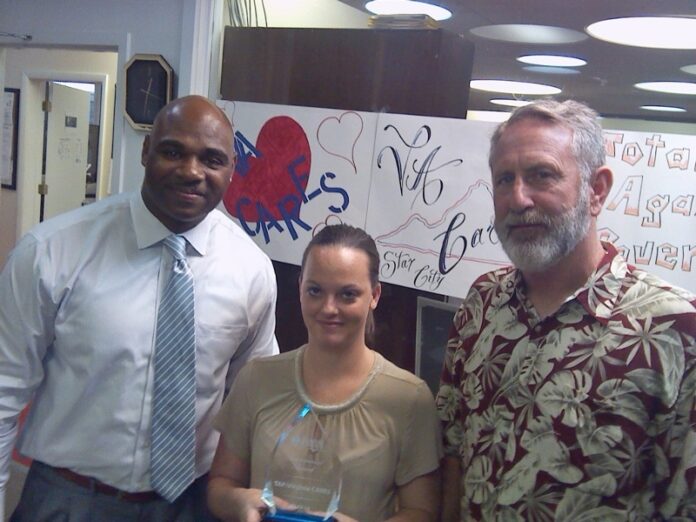
They did the crime and then did their time – so don’t let a past felony conviction and the associated stigma deny them reentry into mainstream society. That’s the message being preached by Virginia Cares, an offshoot of TAP that helps ex-felons find jobs from 12 locations across the state.
The Roanoke office was recently honored with the VA Cares “site award” for its work in the last fiscal year, when people like employment specialist Shawn Hunter helped 238 ex-felons find jobs. These are mostly service and manufacturing jobs said Hunter; most have remained in those positions although a handful did fail drug screenings. Hunter helps ex-felons prepare resumes, go through job-readiness classes and puts them through mock interviews. He also goes to bat for them with prospective employers.
Most of those ex-felons that found employment were violent offenders. “However they have served their time and are out now…we found them jobs that matched their skills,” said Hunter. He lets employers know right up front that he works with people that “have backgrounds.” Some tell him they do not hire ex-felons and “sometimes I have to persuade them [to hire ex-felons].”
Now Virginia Cares wants Roanoke City to aid their cause and “Ban the Box,” removing the question on city employment applications that asks prospective employees if they have ever been convicted of a felony. It wouldn’t stop background checks but would be less discouraging and removes the temptation of ex-felons to lie about their past when applying for a city position.
Hunter said several other localities in Virginia have banned the box and the issue has been debated in the General Assembly. He and TAP president Ted Edlich spoke at the Roanoke City Council meeting on Monday, asking that the felony question be removed from city applications.
The hope, said Hunter, is that Roanoke might also set an example for employers in the private sector. City Council said they would study the matter over the next 60 days. “It’s a barrier and a form of discrimination which [often] does not allow them to get a job.”
These are people that just need an opportunity, “otherwise they may revert back to their old criminal ways,” said Hunter, who takes pride in being able to help his clients. “I just love to help people.” He estimates that 85 percent of those released from prison have “made up their minds” that they want to do the right thing. “Just because they committed a crime does not make them a criminal (for life).”
As for those he has helped place, Hunter said, “The retention rate is phenomenal. They are doing well, they’re out in society and being productive.” He only deals with ex-felons from local jails and prisons; some are referred by probation officers while others come in to the downtown office (302 2nd St. NW) on their own. It’s all about second chances. “We are transforming lives. These people we have gotten jobs for are now taxpayers. Not only that, they are consumers and are boosting the local economy.”
They’ve done their time said Hunter, now it’s time to mainstream those ex-felons that want to get on the straight and narrow. Banning the felony conviction box on employment applications is a start.
“Either we are going to allow them to get back in to the workforce – or we are going to push them against the wall and make them revert back to their past behavior.” Hunter and Virginia Cares hope that if the General Assembly sees that some localities have already banned the box, they may pass legislation along the same lines. (Contact VA Cares at 293-4903.)
By Gene Marrano


